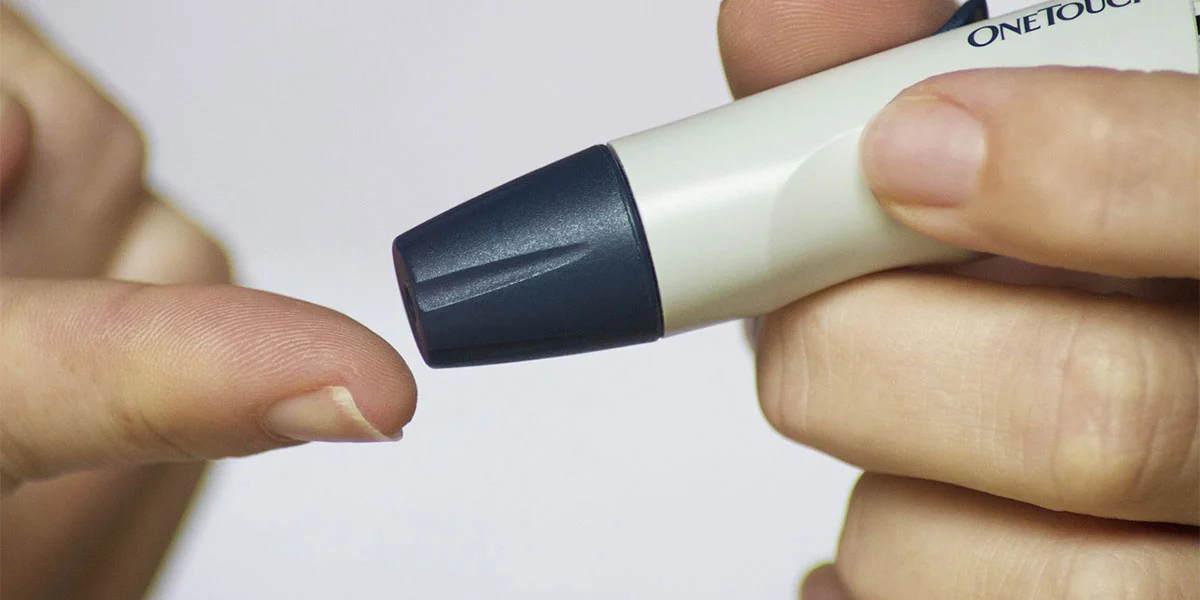What do you understand by Reversing Diabetes?
Reversing Diabetes is often used to describe the improvement of diabetic symptoms to the point where blood sugar levels return to normal or become significantly more stable without the need for medication. However, it’s important to note that diabetes is a chronic condition that cannot be completely cured or reversed in the traditional sense.
The two main types of diabetes are type 1 diabetes and type 2 diabetes
- Type 1 diabetes: This is an autoimmune condition where the body’s immune system attacks and destroys insulin-producing cells in the pancreas. People with type 1 diabetes require insulin injections or an insulin pump to regulate their blood sugar levels since their bodies can’t produce insulin. It is not reversible, but it can be managed effectively with insulin therapy, diet, and lifestyle adjustments.
- Type 2 diabetes: This is a condition characterized by insulin resistance, where the body’s cells don’t respond properly to insulin, and the pancreas may not produce enough insulin. Type 2 diabetes can sometimes be managed or improved through lifestyle changes, such as adopting a healthy diet, increasing physical activity, and losing weight. When people with type 2 diabetes make significant changes to their lifestyle and achieve better blood sugar control without medication, it is sometimes referred to as “reversing” or “remission” of diabetes.
It’s important to consult with a healthcare professional if you have diabetes or any concerns about your blood sugar levels. They can help you develop a personalized plan to manage your condition effectively
How many people reverse diabetes?
- The concept of “reversing diabetes” or achieving remission from diabetes primarily applies to type 2 diabetes. As mentioned earlier, type 1 diabetes is an autoimmune condition that cannot be reversed. However, some people with type 2 diabetes can achieve improved blood sugar control through lifestyle changes and, in some cases, even reduce or eliminate the need for diabetes medications.
- The likelihood of achieving remission from type 2 diabetes varies from person to person and depends on various factors, including age, overall health, the duration of diabetes, and the extent of lifestyle changes made. Not everyone with type 2 diabetes will be able to achieve remission.
- Studies have shown that significant weight loss, healthy eating habits, and regular physical activity can lead to improvements in blood sugar levels for some people with type 2 diabetes. In some cases, this can result in a state where blood sugar levels are well-controlled without the need for diabetes medications. However, it’s essential to remember that diabetes remains a chronic condition, and even if blood sugar levels are well-managed through lifestyle changes, ongoing monitoring and care are necessary.
- As of my last update in September 2021, the percentage of people who achieve remission from type 2 diabetes can vary widely across different studies, and there is ongoing research in this area. It’s crucial for individuals with diabetes to work closely with healthcare professionals to develop a suitable management plan and understand the possibilities and limitations of achieving remission. For the most recent and accurate data on this topic, I recommend consulting recent medical literature and studies or speaking with a healthcare provider.
How long can diabetes be reversed?
The duration for which diabetes can be reversed or achieve remission varies from person to person. It depends on several factors, including the type of diabetes (type 1 or type 2), the individual’s overall health,
the severity of the condition, and the effectiveness of the lifestyle changes made.
- Type 1 diabetes is an autoimmune condition, and as of my last update in September 2021, it cannot be reversed. People with type 1 diabetes require insulin therapy to manage their blood sugar levels throughout their lives.
- Type 2 diabetes is a condition characterized by insulin resistance, and in some cases, it can be managed or even reversed through lifestyle changes, particularly if the condition is caught early and the person adopts healthy habits.
- Some studies have shown that significant weight loss, adopting a healthy diet, and increasing physical activity can lead to improved blood sugar control in some individuals with type 2 diabetes. In some cases, this can result in a state where blood sugar levels are well-managed without the need for diabetes medications. This state is often referred to as remission.
- However, it’s important to note that diabetes remains a chronic condition, and remission is not a cure. Even if someone achieves remission from type 2 diabetes, it does not mean they are completely free from the risk of diabetes-related complications. To maintain remission and good health, continued lifestyle modifications and regular medical check-ups are essential.
- The duration of remission can vary for each individual. Some people may be able to maintain remission for years, while others may find it more challenging to sustain. If an individual resumes unhealthy habits, such as poor diet and sedentary lifestyle, their diabetes may worsen again.
- It’s crucial for individuals with diabetes to work closely with healthcare professionals to develop a suitable management plan and understand the possibilities and limitations of achieving remission. Regular monitoring and medical guidance are essential components of diabetes management, whether one is aiming for remission or maintaining stable blood sugar levels.
What foods can reverse diabetes?
While there is no specific food or miracle diet that can “reverse” diabetes, certain foods and dietary patterns have been shown to help manage blood sugar levels and improve insulin sensitivity in individuals with type 2 diabetes. Adopting a balanced and healthy diet can play a crucial role in diabetes management and may even lead to improvements in blood sugar control.
Here are some dietary recommendations that can be beneficial for people with diabetes:
- High-fiber foods: Foods rich in fiber can slow down the absorption of sugar, leading to more stable blood sugar levels. Include plenty of fruits, vegetables, whole grains, legumes, nuts, and seeds in your diet.
- Non-starchy vegetables: These are low in calories and carbohydrates but rich in nutrients. Examples include leafy greens, broccoli, cauliflower, cucumbers, bell peppers, and zucchini.
- Lean protein: Choose lean sources of protein such as poultry, fish, tofu, tempeh, and legumes. Protein can help with satiety and may prevent rapid spikes in blood sugar after meals.
- Healthy fats: Foods rich in healthy fats, such as avocados, nuts, seeds, and olive oil, can help improve insulin sensitivity and support heart health.
- Foods with a low glycemic index (GI): The glycemic index measures how quickly a food raises blood sugar levels. Foods with a low GI are digested more slowly, causing a gradual increase in blood sugar. Examples of low-GI foods include sweet potatoes, quinoa, barley, and most fruits.
- Limit added sugars and refined carbohydrates: Minimize the consumption of sugary beverages, sweets, and processed foods made with refined flours. These can cause rapid spikes in blood sugar levels.
- Portion control: Pay attention to portion sizes, as even healthy foods can affect blood sugar levels if consumed in large quantities.
- Stay hydrated: Drink plenty of water throughout the day, as adequate hydration can help maintain overall health and support proper metabolism.
- Regular mealtimes: Try to establish regular eating patterns and avoid skipping meals, as this can help with blood sugar regulation.
It’s important to remember that individual responses to diet can vary, and what works for one person may not be as effective for another. A personalized approach to nutrition, considering factors like individual health, lifestyle, and preferences, is essential. Therefore, it is recommended to work with a registered dietitian or healthcare professional who specializes in diabetes management to create a tailored and sustainable eating plan. Additionally, combining a healthy diet with regular physical activity, stress management, and medication (if prescribed) can provide comprehensive support in managing diabetes effectively.
How can I control my diabetes without medication?
Controlling diabetes without medication is possible for some individuals, particularly those with type 2 diabetes, through lifestyle modifications. It’s important to note that this approach may not work for everyone, and it’s crucial to work closely with a healthcare professional to monitor your progress and make informed decisions about your diabetes management.
Here are some lifestyle changes that can help control diabetes without medication:
- Healthy Diet: Adopting a balanced and nutritious diet is key to managing diabetes. Focus on whole, unprocessed foods, including vegetables, fruits, whole grains, lean proteins, and healthy fats. Avoid or limit sugary beverages, sweets, and refined carbohydrates. Pay attention to portion sizes and aim for regular meal timings.
- Regular Physical Activity: Engaging in regular exercise can help improve insulin sensitivity and blood sugar control. Aim for at least 150 minutes of moderate-intensity aerobic activity per week, along with muscle-strengthening activities on two or more days a week.
- Weight Management: If you are overweight or obese, losing even a small amount of weight can significantly improve diabetes management. Weight loss can increase insulin sensitivity and reduce the need for diabetes medications.
- Stress Management: Chronic stress can affect blood sugar levels. Incorporate stress-reducing activities into your daily routine, such as meditation, yoga, deep breathing exercises, or spending time in nature.
- Adequate Sleep: Getting enough quality sleep is essential for overall health and can positively impact blood sugar regulation.
- Stay Hydrated: Drink plenty of water throughout the day to support proper metabolism and overall health.
Monitor Blood Sugar Levels: Regularly monitor your blood sugar levels as advised by your healthcare provider. Keeping track of your levels can help you understand how your lifestyle changes are affecting your diabetes management. - Educate Yourself: Learn more about diabetes and its management. Understanding how different foods and activities affect your blood sugar can empower you to make informed decisions.
- Social Support: Surround yourself with a supportive network of family, friends, or diabetes support groups. Having people who understand and encourage your efforts can be beneficial.
- Regular Medical Check-ups: Even if you are managing diabetes without medication, it’s essential to have regular check-ups with your healthcare provider to monitor your progress and address any potential concerns.
Remember that each person’s diabetes management is unique, and what works for one individual may not work for another. It’s essential to work closely with your healthcare team to develop a personalized plan that suits your specific needs and health status. If at any point your blood sugar levels become difficult to manage or you experience complications, your healthcare provider may recommend medication as part of your treatment plan. Always follow your healthcare provider’s guidance and recommendations for the best outcomes.
Read these Articles also:
- Turmeric for Acne: The Ultimate Guide to Clear and Glowing Skin
- Tallow for Skin Care: Benefits, Side Effects and How to Use
- Safety Tips on Diabetes
If you don’t like this article/post please share your feedback.





